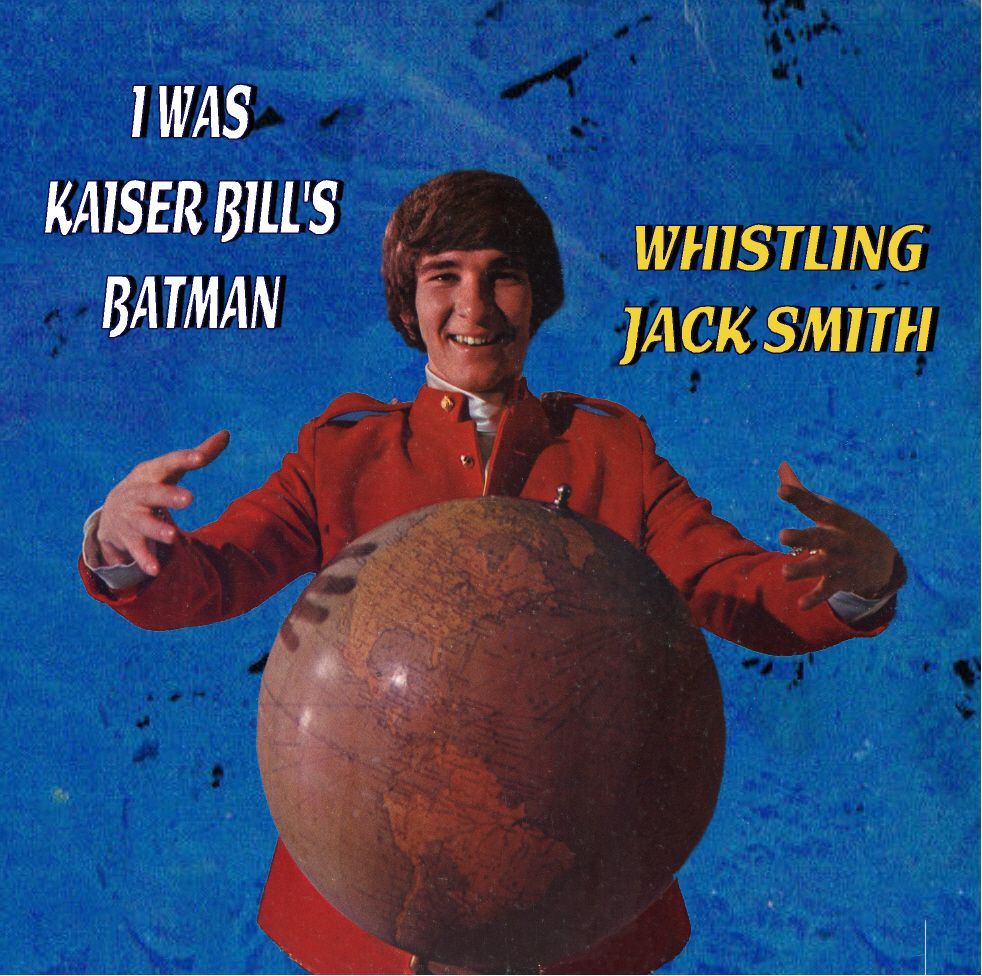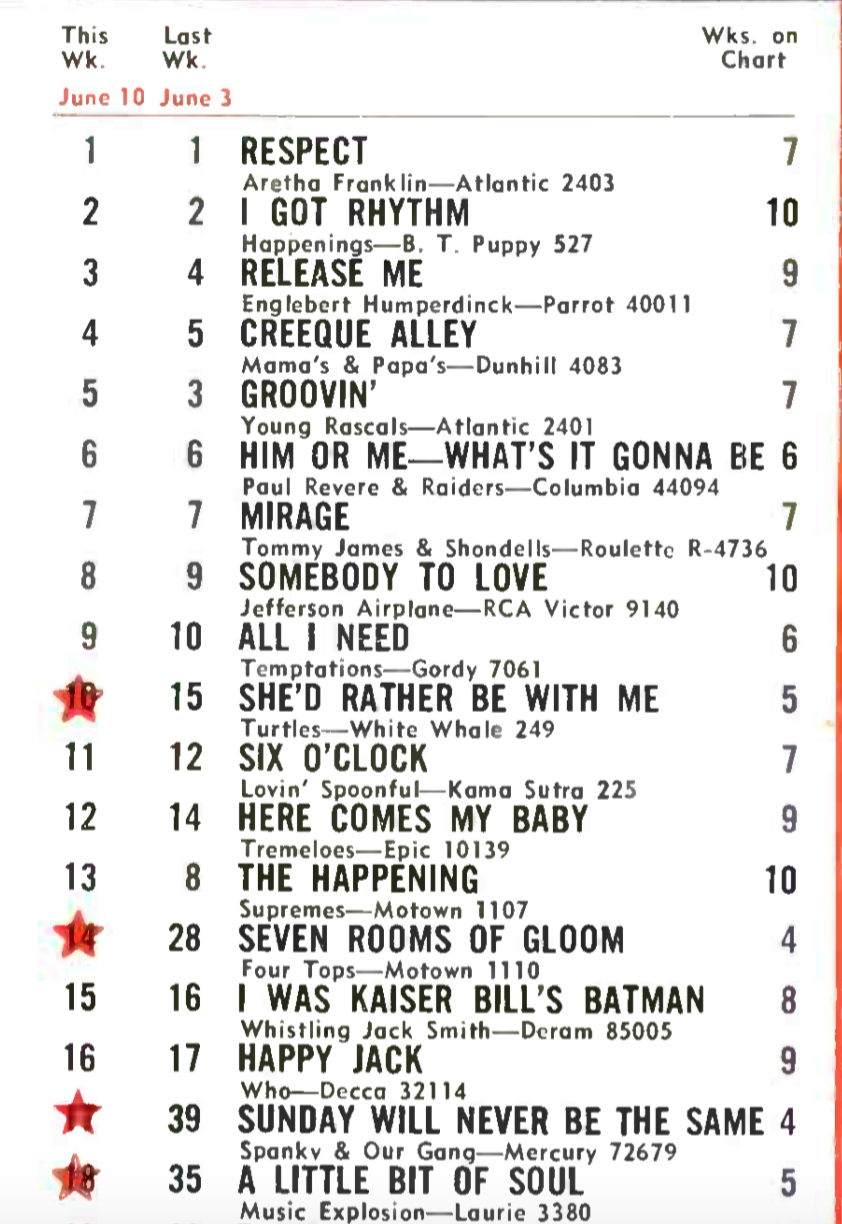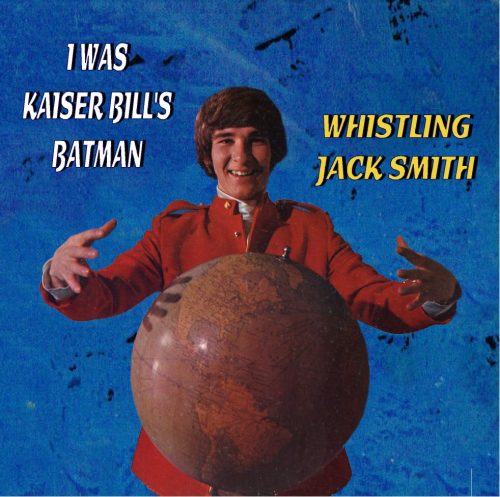
Think for a minute about the spring of 1967. The Beatles’ most recent single is “Penny Lane” backed with “Strawberry Fields Forever.” The Doors have just begun to break through and the Monterey Pop Festival is about to put Jimi, Janis and the Who into the national spotlight. Motown and soul are still all over the radio, which itself has split into two factions: AM for the top 40 (most of which is still excellent) and FM for the new, hipper, more cutting-edge sounds. There’s so much superb music that it’s hard to keep up with it all.
But there was still room for the weird and the silly. Exhibit A: “I Was Kaiser Bill’s Batman,” by Whistling Jack Smith. To call “Kaiser…” anything but a trifle, a toss-away novelty, would be to give it too much credit, yet it was undeniably catchy—you could hum along to it with ease or, more appropriately, whistle to it. Odd thought it may have been, the single started to sell on both sides of the Atlantic, reaching #5 in the U.K. shortly before starting its ascent in the States. Released on the Deram label, “I Was Kaiser Bill’s Batman” entered the chart on April 29, 1967. It peaked at #15 on Record World on June 10 and two weeks later it was gone.

It’s not one of the most memorable songs of the ’60s, to say the least, but it does have a curious backstory. “I Was Kaiser Bill’s Batman” started life as a ditty called “Too Much Birdseed.” A giddy little number, it was written by Roger Cook and Roger Greenaway, who’d already given us the sublime “You’ve Got Your Troubles” by the Fortunes and “Green Grass” by Gary Lewis and the Playboys (they would later co-pen the Hollies’ “Long Cool Woman in a Black Dress,” among other hits). The title, “I Was Kaiser Bill’s Batman,” referred not to the iconic comic book and TV hero but instead to the word given to “soldier-servants” whose duty was to personally assist higher-ranked officers. (Hey, we don’t know why they chose that title either, but that’s the story.)
Related: The biggest hits of 1967
The record’s success posed a problem for Deram, however. There was, it seems, no Whistling Jack Smith. The recording, in reality, featured one John O’Neill, a British singer whose whistling skills had already been put to good use on the main theme to the 1966 film The Good, the Bad, and the Ugly. O’Neill was paid a flat fee to become Whistling Jack Smith (a play on the name of 1920s-’30s American singer Whispering Jack Smith), then disappeared back to wherever he’d come from.
Soon, though, he’d be in the curious position of watching, as a spectator, his recording become a hit while gaining absolutely nothing more for that achievement. As the single—with its B-side “The British Grin And Bear” (written by producer Nooel Walker)—took off, England’s top music TV program, Top of the Pops, needed to quickly find someone who could stand in front of the camera and sway while miming O’Neill’s whistle. The whistling man himself never got the call: when O’Neill turned on his TV to watch the show he saw actor Coby Wells playing the role of Whistling Jack Smith.
Whistling Jack Smith, as he didn’t exist per se, never had another hit in either England or America. But John O’Neill did OK for himself for a while, recording traditional Irish songs, secure in the knowledge that it was his whistling lips that had, for one shining moment, climbed the charts in the U.K. and the United States.
Ready? Our Classic Video…
Bonus: The Good, the Bad, and the Ugly… with whistling!


1 Comment
a servant to the high ranking military are know as a bagman – maybe there was a verbal translation error when they put this together?